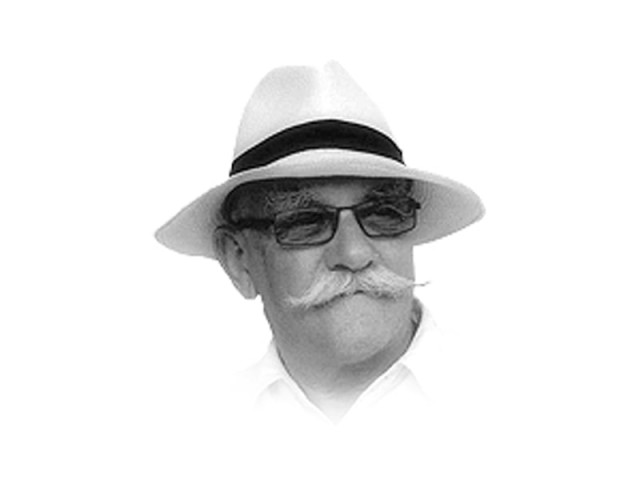The Big Empty
Bumping up against the educational deficits of Pakistan can be a salutary experience.

The writer is editorial consultant at The Express Tribune, news junkie, bibliophile, cat lover and occasional cyclist
Oddly enough, I came across The Big Empty recently in Pakistan and it is not vast in geographical terms, indeed it is not geographic at all. It is the yawning void between the left and right ears of many so-called educated young men and women. The void, like The Big Empty, is not entirely empty and there are oases of mental vegetation densely packed with all manner of useful, indeed essential, information and ideas.
If one hunts around for a while, there are clearly the rudiments of wisdom, with the occasional towering spire of knowledge reaching above the desolation.
But these oases and spires seem to have lost the outwards urge, the need to quest beyond the confines of their impermeable perimeters, perimeters that are ambuscades constructed of thorny conspiracy theories, misinformation and most potent of all — an education system that is narrow, bigoted, promotes a misogynist mindset and is riddled with gross inaccuracies.
I have no wish to alienate my readers, or insult them in any way, but bumping up against the educational deficits of Pakistan can be a salutary experience. It is not just that many seem to have only the haziest of ideas as to what the effects on geopolitics was of the two world wars, or when the Kingdom of Saudi Arabia was established; it was much more recent events that had passed by many of the young people I was talking with. Like the ‘Pivot towards the Pacific’ in American foreign policy, or the emergence of the ‘BRIC’ states — Brazil, Russia, India and China — as a trading and political entity. There were some gaping holes in their knowledge of the foundation of their own state, and an admission by some that their schooling at primary and secondary level had served them poorly.
And here’s the rub. It is not their fault. If they are not taught something, then how can they know? If their teachers are innocent of how the world works and fits together, then how are they going to pass anything, but their own ignorance, to their students?
The Big Empty that I came across stretches countrywide, and this arid zone has been assiduously cultivated by successive governments for decades. It is almost as if the state decided, somewhere in the distant past, that a little knowledge was indeed a dangerous thing and the barest minimum in terms of fulfilment of educational needs would be given to those born to the Land of the Pure. And if that is truly so and I strongly suspect that it is, then our rulers have done us the gravest of injustices.
It would be easy to end on a note of profound pessimism, but all is not lost. There are educational advances in Pakistan, some of them huge and foreign donors are investing heavily in the future of our children. But distributing laptops is no replacement for a teacher being able to explain the Permian Extinctions, or the origins of the tea trade or the invention of gunpowder. Neither is it a replacement for a library, though digital access to many books online is making hard-copy libraries less and less essential. And most importantly, it is no replacement for that particular gift that teachers — good teachers — have and that is the ability to spark in their students the Outward Urge. To not take things at face value, to challenge conventional wisdoms and seek knowledge beyond the classroom. To stand up and question, politely and constructively, that which has either been imperfectly explained or just not explained at all. Unless and until the culture of questioning is enabled in the void between the left and right ears, there is going to be nothing to fill the emptiness.
Published in The Express Tribune, December 5th, 2013.
Like Opinion & Editorial on Facebook, follow @ETOpEd on Twitter to receive all updates on all our daily pieces.















COMMENTS
Comments are moderated and generally will be posted if they are on-topic and not abusive.
For more information, please see our Comments FAQ